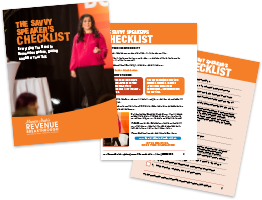Why You Should Hire Support, and Where to Start
Do you ever feel overwhelmed and stressed because you feel like you cannot even handle the smallest of tasks? This is where hiring support can help. For example, I vividly remember the morning I leaned against our kitchen counter, looked at my husband Jai, and said, “I just really need someone to massage my kale.”
He started laughing, and so did I.
It was a Sunday, around 8 a.m., and I was trying to prepare for a week where I’d be traveling, doing two events, and managing clients – and I wanted to eat healthy, too. So I woke up and got out the kale, the golden raisins, and the olive oil.
And then I just got tired. You know the feeling.
It’s difficult, if not impossible, to manage everything. And in that moment, I realized that I needed someone to help me with my food prep to stay healthy – to help me massage the kale.
So many of us women grew up watching our moms do everything. They got things done, they managed to keep the house clean, they took care of their kids, they worked outside the home.
But as a result, their physical health suffered. Their mental health suffered. Their mindset, their dreams, their passions, and the things they wanted to create in the world all suffered.
I can’t speak for your mom, but I know my mom passed away much earlier than she needed to – and a lot of it was because she didn’t know how to ask for support.
So if you’re feeling flustered and exhausted as a woman entrepreneur – between cleaning the house, getting groceries, cooking meals, running your business, organizing your kids’ schedules, and caring for loved ones – I want you to remember that getting support is a decision.
Often, it’s a decision that feels like it contradicts everything we’ve been taught. We’ve been taught to do things alone, to rely only on ourselves. But it doesn’t have to be that way.
There are three basic ways to get support in your business. The first is getting home support.
This could mean hiring someone who comes and cleans once or twice a month, someone who comes once a week to do your grocery shopping and help with meal prep, or a personal chef who comes by once a week.
The second category of support is a personal assistant. This might be someone who works for you in person for five or ten hours a week. Maybe they organize your files, do errands for you, filter through your email inbox, clean up your calendar, or help you manage clients.
The first person I hired in my own business was a personal assistant. It felt like a failure at the time, but it was so worth it.
The third and final category is a virtual assistant. A virtual assistant fills many of the same needs as a personal assistant, except for the fact that they’re working for you remotely.
They might still organize your emails, maintain your calendar, help you manage clients, and help you run your programs.
All three of these categories are basic jumping-off points for thinking about what kind of help you might need.
And of course, it would be remiss of me not to mention the money piece of this. Here’s the way I want you to think about that.
If you’re bringing somebody on to support you – let’s say they’re working five hours a week at $20 per hour – that would be $100 per week or $400 per month. That person is freeing up 20 hours for you, and you’re paying them $400 for it.
If you take six of those 20 hours and fill them with six sales conversations – and you have a one out of three closing rate – you can reasonably use this extra time to sign two new clients. Let’s say each client pays $1,000, meaning two clients would pay $2,000.
Judging by these baseline calculations, by hiring someone to help you for five hours a week at $20 an hour, you’re bringing in $2,000 – which gives you a five-times return on your investment of $400.
Personally, I would take that bet any day! The numbers speak for themselves – asking for help and hiring support does NOT represent automatic failure, and it could quite feasibly help you grow your business and financial stability.
So my invitation to you this week is to ask yourself: where do you need support in your business, and how can you get that support?
Know that you have my permission to ask for help and find support. And know that it is OK.








